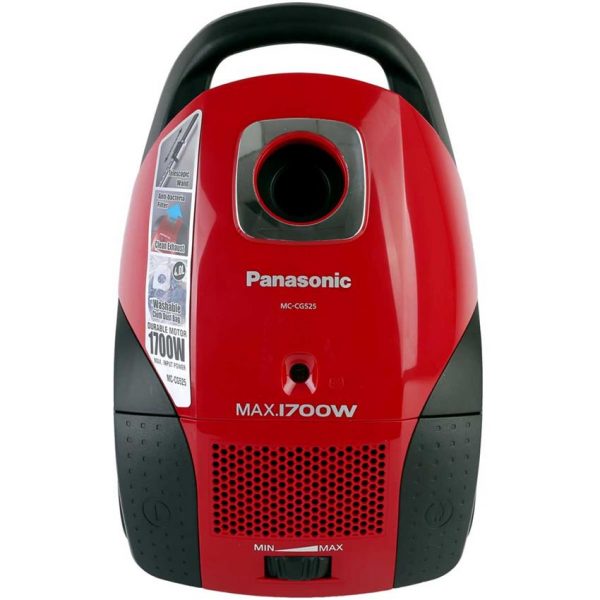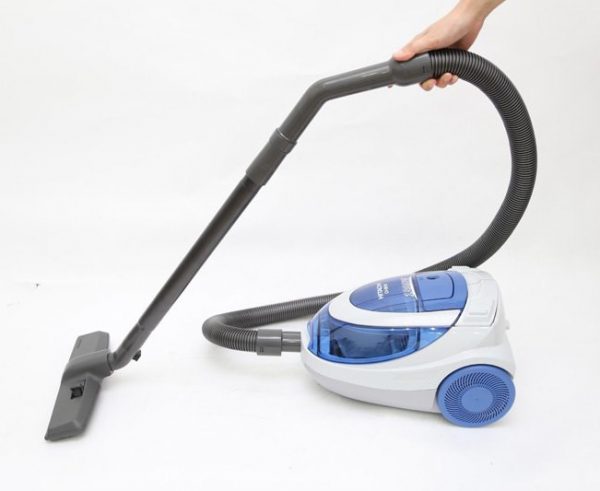Hoover’s promotion has sent vacuum cleaner sales escalating, but manufacturers think supermakets are missing out on bags of extra profit. Sally Maslowska reports.
NEWS OF Hoover’s free-flight promotion will have undoubtedly stuck in the mind of anyone opening a journal or tuning on the radio over the past few months.
It’s one of the most widely publicised promotions for years, and even Jimmy Young’s legal beagle spot on Radio 2 hasn’t escaped its share of worried inquiries to see whether Hoover really can honour its offer, which will result in planes packed with ex gratia seats.
Doubts eliminated, thousands of Florida-bound migrators will be packing the sun tan lotion and leaving their brand new Hoovers at home.
Not that Hoover is complaining as staff work flat out to keep up with demand for appliances.
The company is also reporting excellent sales levels of spares to go with new models.
While Hoover is enjoying an extended blip on its sales charts, vacuum cleaner manufacturers believe supermarkets haven’t cottoned on to the full potential of selling genuine “consumable spares” — the unlikely term for vacuum accessories.

The vacuum cleaner bag market is currently worth |pounds~50m a year at retail prices.
According to Electrolux and Hoover, replacement bags are a necessity for over 20 million UK households, with consumers changing bags on average once a month.
Ian Robertson, brand manager at Hoover, says: “Market research recently carried out by RSGB showed that 64% of consumers actually prefer to buy paper bags made by the manufacturer.
“By implication, retailers that stock only non-genuine bags miss out on two-thirds of their potential market.”
David Oakley, marketing manager for Distriparts, the spares area of Electrolux, agrees: “Consumers invest in a branded vacuum cleaner because they have the confidence in it. so it is only natural they will wish to buy the same brand in consumable spares.”
One example of this is with new high filtration vacuum cleaners especially designed to help people suffering from asthma and others with dust allergies. With asthma affecting two million people in the UK, products designed with this sector in mind are becoming big business.
Electrolux claims that its Airstream vacuum cleaner traps 99.9% of dust down to particle size 0.3 microns and its success is all down to the type of material used in the bags.
“Without the special dustbags,” says Mr Oakley, “the Airstream will not work to maximum efficiency.”
Filters also play a large part in improving airflow and retaining dust emissions. Mr Oakley continues: “These should be changed frequently. All too often customers forget about the filter until it’s well past its useful life. Keeping a stock of filters next to the dustbag display serves as a timely reminder for the customer who will buy both together.”
Gateway lists its Pact range of dustbags and in larger stores its 10 different options cover 90% of vacuum cleaners on the market. Nigel Fleet, product manager at Gateway, says: “We feel the secondary branding is just as good as the branded bags.”

On a price level, Mr Fleet reports: “Consumers might not be as price-conscious as we think, but the difference is enough to bother about.”
Gateway confirms that its range of dustbags are adjusted to keep pace with new vacuum models that have established themselves.
Although some multiples carry vacuum bag ranges and carpet accessories, including shampoos and fresheners, there is often a noticeable lack of belts, filters and other accessories on-shelf.
But retailers in the electrical business are not slow when it comes to stocking the real Mc Coy.
“Currys and Comet carry a range of fast-moving genuine vacuum cleaner spares and enjoy a healthy turnover and profit from this product range,” says Hoover’s Mr Robertson.
And he adds: “Both in the past have sold non-genuine products, but did not reach the level of turnover or the cash margins that were available on the higher-priced genuine equivalents.”
More often than not, dust bags, belts and the like are to be found along with batteries and plugs on supermarket shelves. Mr Robertson believes this may not necessarily be the ideal position and suggests household products such as bin liners and cleaning agents would make compatible partners to help tie in the range.